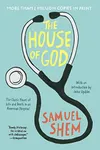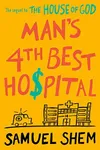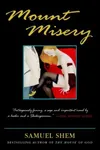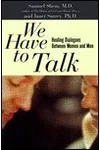Picture an American psychiatrist who turned the grueling world of medical residency into a laugh-out-loud satire—meet Samuel Shem! Writing under a pen name, Stephen Joseph Bergman crafted 'The House of God,' a novel that shook the medical world with its raw humor and unflinching look at the human cost of doctor training. A Harvard-educated Rhodes Scholar, Shem blends wit, empathy, and activism to champion humanity in healthcare.
From his biting novels to his heartfelt plays, Shem’s work resonates with doctors, patients, and readers who crave stories that cut through the chaos of modern medicine. Let’s dive into the life and legacy of this literary trailblazer!
The Making of Samuel Shem
Born in 1944, Stephen Joseph Bergman grew up with a sharp mind and a knack for storytelling. Of Jewish descent, he excelled at Harvard College and Harvard Medical School, earning a Rhodes Scholarship to study at Balliol College, Oxford, in 1966. There, under the tutelage of cardiac physiologist Denis Noble, Bergman dabbled in writing, encouraged by copious sherry and a supportive mentor. His internship at Beth Israel Hospital (now Beth Israel Deaconess Medical Center) in Boston exposed him to the brutal realities of medical training, planting the seeds for his literary career.
Adopting the pseudonym Samuel Shem to shield his psychiatric patients, he began writing to process the emotional toll of residency. What started as catharsis became a revolution, as his debut novel captured the hearts and minds of a generation of doctors.
Samuel Shem’s Unforgettable Stories
Shem’s 'The House of God' (1978) is a satirical masterpiece, following Dr. Roy Basch, a naive intern navigating the dehumanizing grind of residency. Described by The Lancet as one of the 20th century’s top medical novels, it’s both hilarious and heartbreaking, with iconic 'Laws' like 'The patient is the one with the disease.' Its raw honesty shocked older physicians but earned a cult following among medical students.
Shem continued his critique with 'Mount Misery' (1997), a biting look at psychiatric training, praised for its superb humor. His 'Healing Quartet'—including 'Man’s 4th Best Hospital' (2019) and 'Our Hospital' (2023)—spans 50 years of American medicine, tackling corporate greed and the COVID-19 pandemic. Beyond novels, Shem co-wrote the award-winning play 'Bill W. and Dr. Bob' with his wife, Janet Surrey, celebrating the founding of Alcoholics Anonymous. His style blends dark comedy, moral insight, and a fierce commitment to human connection.
Other works, like 'The Spirit of the Place' (2008), which won two Best Literary Novel awards, explore love, parenting, and home, showcasing Shem’s versatility. His writing is a call to resist dehumanization, whether in hospitals or society, delivered with a wink and a nod.
Why Samuel Shem Matters
Shem’s impact transcends literature. 'The House of God' sparked reforms in medical education, influencing policies like resident work-hour limits. As a professor of medical humanities at NYU School of Medicine, he teaches empathy and resilience, drawing from decades of experience. His global speaking engagements, including over 60 commencement addresses, inspire healthcare workers to stay human amidst bureaucracy.
Through his activism and writing, Shem challenges corporate medicine’s grip, advocating for connection over profit. His work remains a touchstone for doctors and patients, reminding us that laughter and empathy can heal even the most broken systems.
- Born: 1944
- Key Works: 'The House of God,' 'Mount Misery,' 'Man’s 4th Best Hospital,' 'Our Hospital,' 'Bill W. and Dr. Bob'
- Awards: Two Best Literary Novel Awards for 'The Spirit of the Place,' Performing Arts Award for 'Bill W. and Dr. Bob'
- Fun Fact: Shem uses a flip phone, shunning smartphones to stay focused on writing!
Snag 'The House of God' and dive into Samuel Shem’s wickedly funny, profoundly human world!









